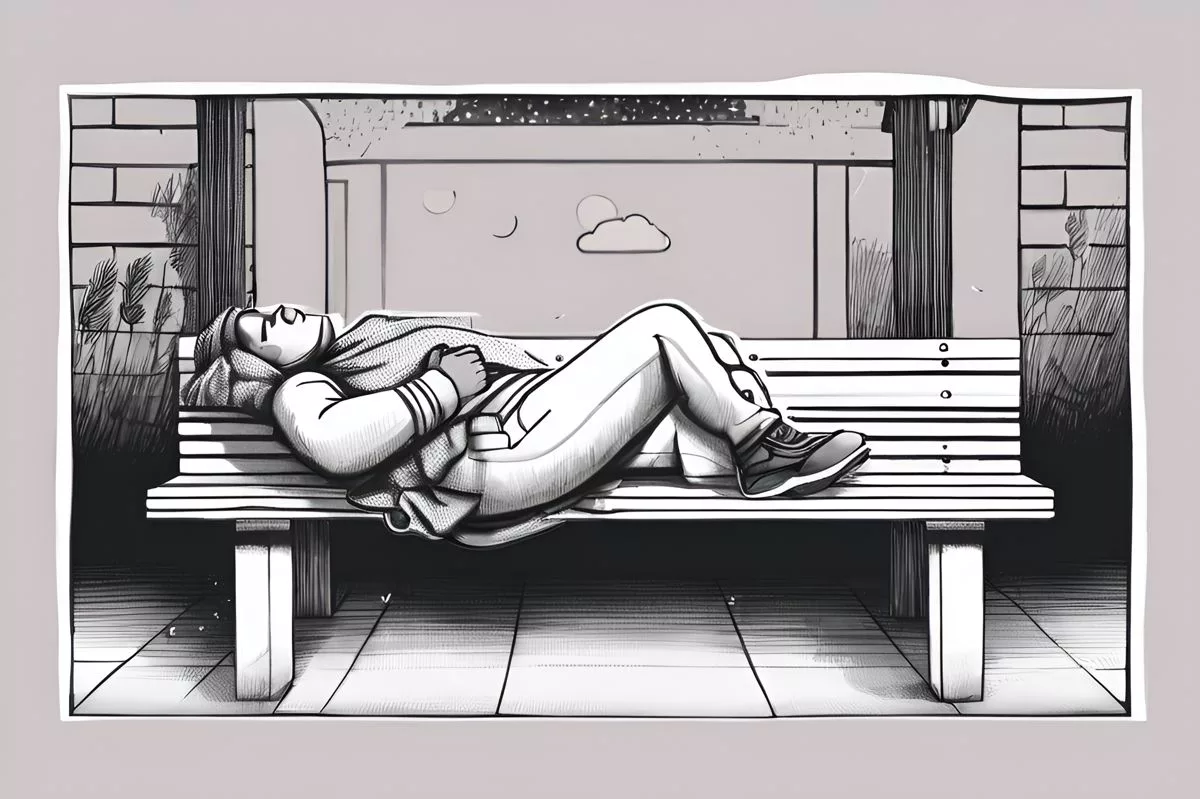South Africa’s unpredictable climate silently adds to the struggle of the homeless population, making their already challenging lives even more uncertain. During winters, severe chill increases the danger of frostbite and other cold-related health issues. However, the magnitude of this humanitarian crisis remains unknown, and state-sanctioned shelters offer temporary relief. Regular citizens can also contribute by donating money, food, clothes, and blankets to these shelters; it’s a shared responsibility to help those without homes weather the storm.
How does South Africa’s climate impact the displaced population?
The unpredictable climate in South Africa silently affects the homeless population, making their already unstable lives even more uncertain. During the winter season, the severe chill poses a danger of frostbite and other cold-related health issues, making survival challenging. Precise information about the magnitude of this humanitarian crisis is unknown, but state-sanctioned shelters provide some relief and hope. Regular citizens can also contribute by donating money, food, clothes, and blankets to the sanctioned shelters. It is a shared responsibility to assist those without homes in weathering the storm.
Section 1: Weather’s Impact on the Displaced
The unpredictable temperament of South Africa’s climate acts as a secret player on life’s stage, silently dictating the existence of the homeless. As each season changes, the already unstable lives of these individuals are tossed into deeper uncertainty, their plight often unnoticed due to their lack of a proper dwelling.
During the winter months, the severe chill does more than cause discomfort. For those without homes, it’s an unwelcome intruder that lingers far too long, escalating the danger of frostbite and other cold-related health issues. Numerous South Africans find themselves precariously balancing on the thin line between life and death, their existence quietly snuffed out by the freezing cold, their narrative unheard.
While the homeless’ struggle against the harsh elements may not be the first thought in our minds as we casually browse the daily weather forecast, it’s an undeniable reality. The seemingly trivial weather updates, for those living on the streets, carry the weight of survival. Each decrease in temperature, every forthcoming tempest, signifies an impending hardship for the homeless.
Section 2: The Struggle Unseen
The irony of this predicament lies in the absence of precise information about homelessness in South Africa. Despite the glaring severity of the situation, the actual magnitude of this humanitarian crisis remains unknown, silently deepening the societal and political divide from the homeless.
However, amidst the grim reality, sparks of optimism shine through. Shelters, although often underfunded and quickly overcrowded, provide some respite from the harsh weather for those without homes. These state-sanctioned institutions offer more than mere shelter. They provide a glimmer of hope, however faint, for South Africa’s homeless to regain their footing and a chance to escape life on the streets.
In this context, the city of Cape Town deserves recognition for taking proactive measures by making a list of available shelters readily available for download. This essential information could be a life-saver during harsh weather conditions. If this initiative is implemented throughout all provinces, it could significantly help in tackling the crisis.
Section 3: A Shared Responsibility
Nevertheless, the government’s role, although critical, isn’t the only solution to this concern. Regular South African citizens can also contribute meaningfully. By coordinating with the local Department of Social Development, people can support the cause by donating money, food, clothes, and blankets to the sanctioned shelters.
Assisting a legal and approved shelter not only guarantees that the help reaches the intended beneficiaries but also cultivates a relationship of trust between donors and shelters, paving the way for continued assistance. A blanket, a meal, a clothing item might appear trivial but could be a lifeline for someone braving a storm without a home.
Section 4: Weathering the Storm Together
In conclusion, the fickle South African climate, while posing a formidable obstacle for the homeless, also nudges us to recognize our collective responsibility. It’s a glaring reminder of the unseen battles fought on our streets every day and a call for us to extend our compassion beyond our own daily routines.
We may not have control over the weather, but we can certainly affect how it impacts the most vulnerable among us. By recognizing the hardship of those without homes and taking concrete steps to assist, we can provide more than just empathy. We can offer hope, and often, that’s the most comforting refuge one can receive.
- How does South Africa’s climate impact the displaced population?
-
The unpredictable climate in South Africa silently affects the homeless population, making their already unstable lives even more uncertain. During the winter season, the severe chill poses a danger of frostbite and other cold-related health issues, making survival challenging.
-
Why is it difficult to determine the exact magnitude of the humanitarian crisis?
-
Despite the glaring severity of the situation, the actual magnitude of this humanitarian crisis remains unknown, silently deepening the societal and political divide from the homeless.
-
What role do state-sanctioned shelters play in providing relief?
-
Shelters, although often underfunded and quickly overcrowded, provide some respite from the harsh weather for those without homes. These state-sanctioned institutions offer more than mere shelter. They provide a glimmer of hope, however faint, for South Africa’s homeless to regain their footing and a chance to escape life on the streets.
-
How can citizens contribute to the cause?
-
Regular South African citizens can also contribute meaningfully. By coordinating with the local Department of Social Development, people can support the cause by donating money, food, clothes, and blankets to the sanctioned shelters.
-
Why is it important to donate to approved shelters?
-
Assisting a legal and approved shelter not only guarantees that the help reaches the intended beneficiaries but also cultivates a relationship of trust between donors and shelters, paving the way for continued assistance.
-
What can we do as a society to help those without homes?
- By recognizing the hardship of those without homes and taking concrete steps to assist, we can provide more than just empathy. We can offer hope, and often, that’s the most comforting refuge one can receive.












